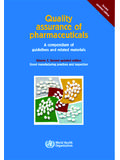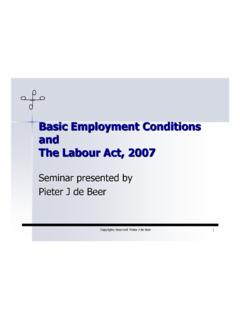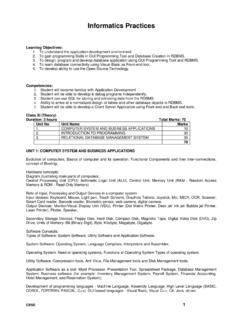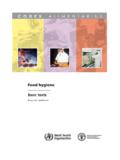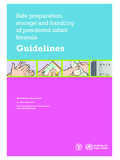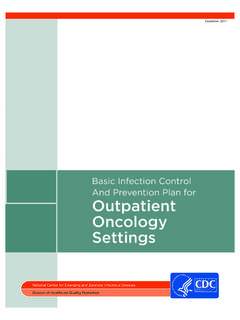Transcription of OECD Principles and Guidelines for Access
1 Principes et lignes directrices de l'OCDE. pour l'acc s aux donn es de la recherche financ e sur fonds publics Public Funding to Research Data from Guidelines for Access OECD Principles and OECD Principles and Guidelines for Access to Research Data from Public Funding ORGANISATION FOR ECONOMIC CO-OPERATION AND DEVELOPMENT. ORGANISATION FOR ECONOMIC CO-OPERATION. AND DEVELOPMENT. The OECD is a unique forum where the governments of 30 democracies work together to address the economic, social and environmental challenges of globalisation. The OECD is also at the forefront of efforts to understand and to help governments respond to new developments and concerns, such as corporate governance, the information economy and the challenges of an ageing population.
2 The Organisation provides a setting where governments can compare policy experiences, seek answers to common problems, identify good practice and work to co-ordinate domestic and international policies. The OECD member countries are: Australia, Austria, Belgium, Canada, the Czech Republic, Denmark, Finland, France, Germany, Greece, Hungary, Iceland, Ireland, Italy, Japan, Korea, Luxembourg, Mexico, the Netherlands, New Zealand, Norway, Poland, Portugal, the Slovak Republic, Spain, Sweden, Switzerland, Turkey, the United Kingdom and the United States. The Commission of the European Communities takes part in the work of the OECD. OECD Publishing disseminates widely the results of the Organisation's statistics gathering and research on economic, social and environmental issues, as well as the conventions, Guidelines and standards agreed by its members.
3 This work is published on the responsibility of the Secretary-General of the OECD. The opinions expressed and arguments employed herein do not necessarily reflect the official views of the Organisation or of the governments of its member countries. Also available in French under the title: Principes et lignes directrices pour l'acc s aux donn es de la recherche sur fond publics OECD 2007. No reproduction, copy, transmission or translation of this publication may be made without written permission. Applications should be sent to OECD Publishing or by fax 33 1 45 24 99 30. Permission to photocopy a portion of this work should be addressed to the Centre fran ais d'exploitation du droit de copie (CFC), 20, rue des Grands-Augustins, 75006 Paris, France, fax 33 1 46 34 67 19, or (for US only) to Copyright Clearance Center (CCC), 222 Rosewood Drive Danvers, MA 01923, USA, fax 1 978 646 8600, 3.
4 Foreword Innovative scientific research has a crucial role in addressing global challenges ranging from health care and climate change to renewable energy and natural resources management. The speed and depth of this research depends on fostering collaborative exchanges between different communities and assuring its widest dissemination. The exchange of ideas, knowledge and data emerging is fundamental for human progress and is part of the core of OECD values. Thus, I am very pleased that the OECD has taken the lead in developing Principles and standards to facilitate Access to research data generated with public funding. The rapid development in computing technology and the Internet have opened up new applications for the basic sources of research the base material of research data which has given a major impetus to scientific work in recent years.
5 Databases are rapidly becoming an essential part of the infrastructure of the global science system. The international Human Genome Project is but one good example of a large-scale endeavour in which openly accessible information is being used successfully by many different users, all over the world, for a great variety of purposes. Besides, Access to research data increases the returns from public invest- ment in this area; reinforces open scientific inquiry; encourages diversity of studies and opinion; promotes new areas of work and enables the exploration of topics not envisioned by the initial investigators. Science and Technology Ministers called on the OECD in 2004 to develop a set of Guidelines based on commonly agreed Principles to facilitate cost-effective Access to digital research data from public funding.
6 The attached Principles and Guidelines are the outcome of this request. They are intended to assist all actors involved when trying to improve the international sharing of, and Access to, research data. Now that we have developed this useful instrument, I call upon political and scientific leaders to adopt it thoroughly. Its use will undoubtedly facilitate the scientific endeavour and therefore contribute to the betterment of society. Angel Gurria OECD Secretary-General OECD Principles AND Guidelines FOR Access TO RESEARCH DATA FROM PUBLIC FUNDING OECD 2007. 5. Table of Contents Background 7. Preface 9. Principles and Guidelines for Access to Research Data from Public Funding 13. I. Objectives 13. II. Scope and definitions 13. Research data 13.
7 Research data from public funding 14. Access arrangements 14. III. Principles 15. A. Openness 15. B. Flexibility 15. C. Transparency 15. D. Legal conformity 16. E. Protection of intellectual property 16. F. Formal responsibility 17. G. Professionalism 18. H. Interoperability 19. I. Quality 19. J. Security 20. K. Efficiency 21. L. Accountability 21. M. Sustainability 22. OECD Principles AND Guidelines FOR Access TO RESEARCH DATA FROM PUBLIC FUNDING OECD 2007. 7. Background In January 2004, Ministers of science and technology of OECD countries met in Paris and discussed the need for international Guidelines on Access to research data. At that meeting, the governments of the 30 OECD countries and of China, Israel, Russia and South Africa adopted a Declaration on Access to Research Data from Public Funding.
8 In this declaration, they recognised the importance of Access to research data and invited the OECD. to develop a set of OECD Guidelines based on commonly agreed Principles to facilitate optimal cost-effective Access to digital research data from public funding to be endorsed by the OECD Council at a later stage . This request was taken up by OECD's Committee for Scientific and Technological Policy, which launched a project by asking a group of experts to develop a set of Principles and Guidelines . The experts drafted a first set of Principles and Guidelines and engaged in several rounds of consultation with research institutions and policy making bodies in the OECD member countries to achieve a consensus. A workshop involving key stakeholders was held in Paris in February 2006 which also contributed to this process.
9 The work leading up to the final draft revealed that international frameworks to facilitate Access were still lacking in the member countries, but also that improved Access was generally seen as benefiting the advancement of research, boosting its quality and facilitate cross-disciplinary research co- operation. Stakeholders considered that international Guidelines would be useful in giving guidance to institutions in need of policies and in enhancing international co-operation in research. The Principles and Guidelines that resulted from this extensive consultation process were approved by the OECD's Committee for Scientific and Technological Policy in October 2006. The Principles and Guidelines were attached to an OECD Recom- mendation and endorsed by the OECD Council on 14 December 2006.
10 OECD Recommendations set out collective and precise standards or objectives which the member countries are expected to implement. A. Recommendation is a legal instrument of the OECD that is not legally binding but through a long standing practice of the member countries, is considered to have a great moral force. Recommendations of the OECD are adopted when member governments are prepared to make a political commitment to implement the Principles (and/or Guidelines ) set out therein. This type of instrument is often referred to as soft law . OECD Principles AND Guidelines FOR Access TO RESEARCH DATA FROM PUBLIC FUNDING OECD 2007. 8. Although some flexibility in the drafting of the standard is possible, the flexibility should not be so wide as to allow individual member countries to modify the standard or object, consequently defeating the idea that there is a commitment on their part.










